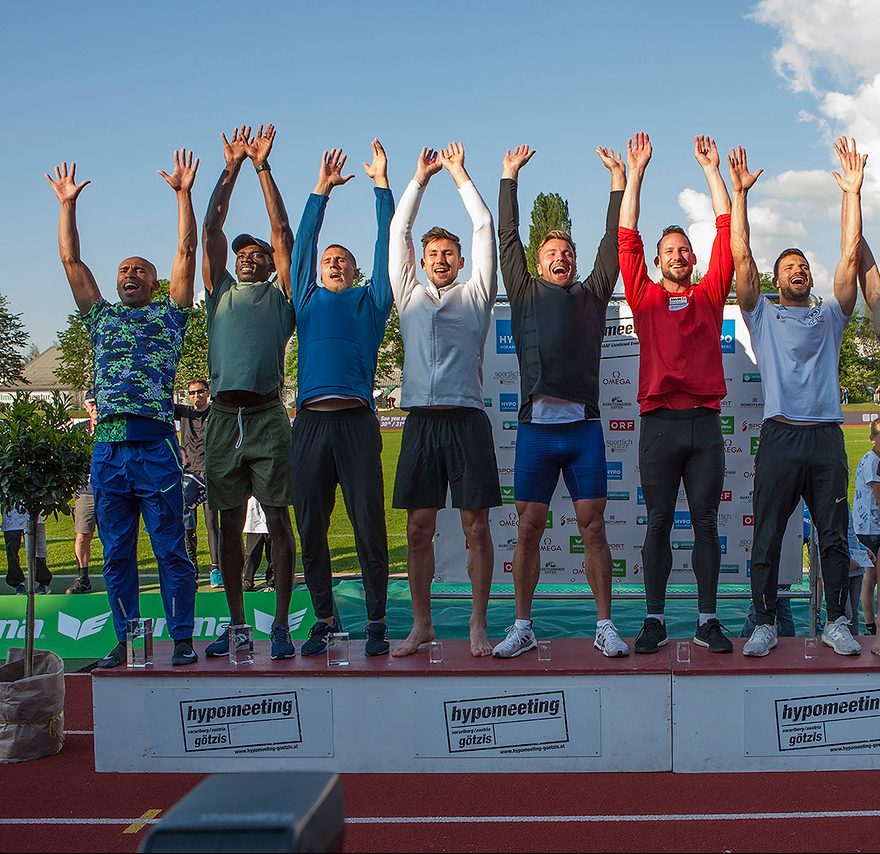And we’re back! After a break in 2020 because of The Pandemic, we return to the Mösle-Stadion for the world’s best multi-event competition. The organisers have left no stone unturned to create a safe environment for the athletes, and while it won’t be the same with only 500 fans in attendance, it’s still Götzis. And a little Götzis is always better than no Götzis.
With less than 10 weeks to go to the multi-events in Tokyo, the Götzis field can be broken down into 5 categories:
- Athletes who have achieved the qualifying marks (8350 and 6420) and who can focus on Olympic preparation;
- Athletes with the qualifying mark but who need to perform again to persuade their federations to select them (hello USA and Germany);
- Those aiming to score 8350 and 6420 to qualify for the Olympics outright;
- Athletes aiming to secure ranking points without the qualification score, and squeeze into the reduced field of 24; and
- Young athletes whose Olympics will likely come in the future but making their debut in Götzis after some fantastic performances over the last year.
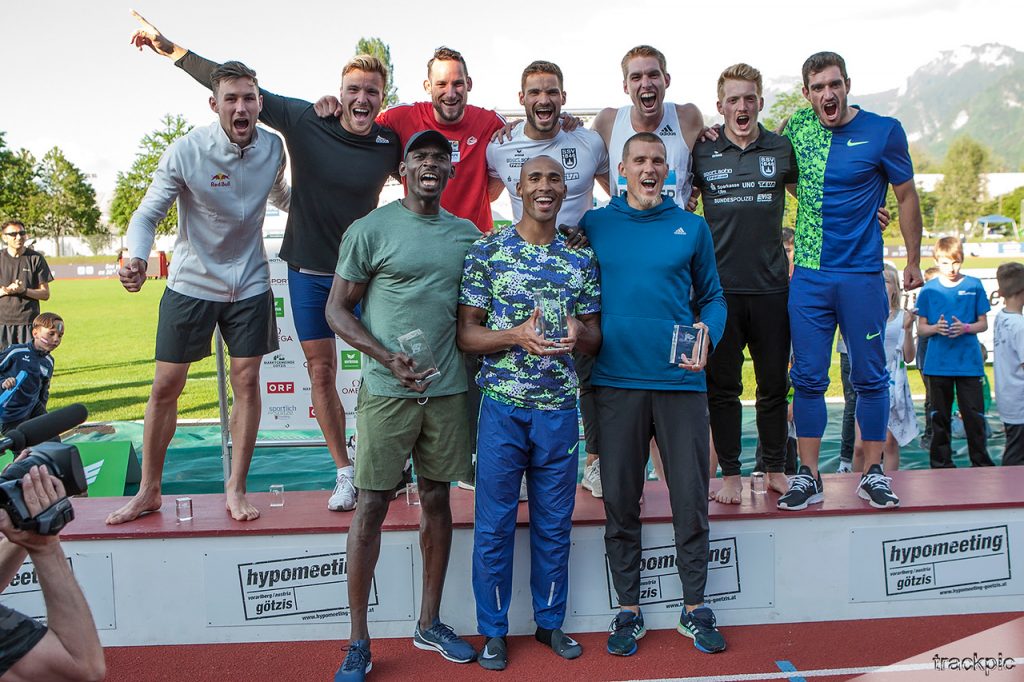
DECATHLON
The entire decathlon podium from the 2019 World Championships in Doha lines up in Götzis – it doesn’t get any better than that. Bronze medallist Damian Warner from Canada, silver medallist Maicel Uibo from Estonia and of course the youngest world decathlon champion of all time, Germany’s Niklas Kaul.
The last time Damian Warner set foot in Götzis, he set a world best of 10.12s for the decathlon 100m, and took his 5th title in 8711, a score which no-one has since exceeded. From that point onwards, the year was bittersweet, and 3rd place in Doha was not what he planned. Since then, Damian has had further ups and downs: a high spot when he became a father, to baby Theo; and the challenges came during lockdown, while he and his team tried to negotiate access to training facilities, a particular problem for the Canadians. Warner’s team-mate Pierce Lepage also has the qualification for Tokyo from his 8453 victory in 2019 in Talence. While this is not Lepage’s first time in Götzis, it is the first time he will start as one of the favourites.
Maicel Uibo and Niklas Kaul, both with multiple Olympic qualifying scores and both over 8600 in Doha, have also competed sparingly since the World Champs. Uibo has been active in several individual disciplines this year, notably vaulting 5.38, close to his lifetime best of 5.40, in April. Kaul returned to competition earlier this month after taking advantage of Olympic postponement to get surgery on his elbow last July and has been throwing some big javelins in training.
The German Federation, however, requires a score of >8150 in Götzis, Bernhausen or Ratingen to guarantee selection. That should be a formality for Kaul, and for Kai Kazmirek, who has a qualifying score of 8444 from Ratingen 2019 and for whom this will be his first decathlon under the guidance of new coach Holger Klein.
However, there will be an almighty tussle for the third spot in the German squad, between Tim Nowak (not in Götzis due to a thigh niggle), Matthias Brugger and Andreas Bechmann. According to the World Athletics “Road to Tokyo” tool, which integrates auto-qualifications and rankings positions, Nowak sits in 25th position, while Brugger and Bechmann are 31st.
The Road to Tokyo tool is a very handy site to bookmark, since not all auto-qualifiers are within the top 24 of the world rankings: Garrett Scantling (8476) is 26th, Harrison Williams (8439) is 28th and Felipe dos Santos (8364) 29th, which is clearly insane.
But back to things that make sense, and both Brugger and Bechmann are in the Götzis field. Twenty-one-year-old Bechmann is making his debut and coming to the outdoor season after a decent indoor season in which he set PBs in the vertical jumps and finished 6th at the European Indoors in Toruń (although subsequently lost a few weeks training afterwards to Covid). Bechmann’s best is 8132 and Brugger’s 8304, from 2018. But the surprise German package of 2021 thus far is Dennis Hutterer, who beat Kazmirek and others at a 4-event competition earlier this month, which included a few PBs. Hutterer has been over 8000 – his best is 8032 from 2018 – and his last decathlon was Ratingen 2019 where he finished 4th.
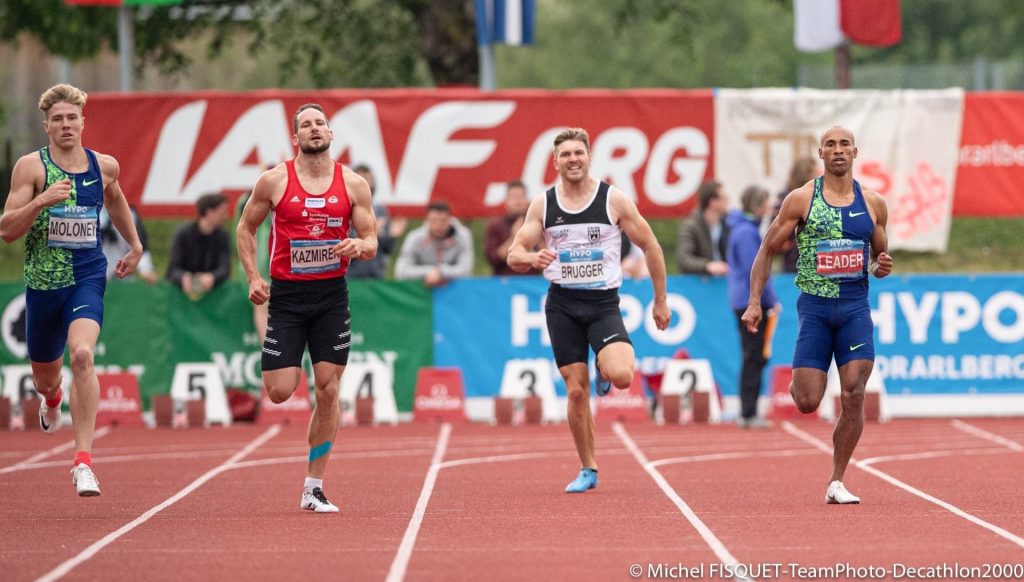
Turning to the Estonians, Uibo should be safe in the Estonian squad and the other two automatic qualifiers Johannes Erm and Karel Tilga are focused on the US NCAA circuit. However, the Estonian selectors could yet have a headache on their hands. Risto Lillemets has been consistently getting better over the last 2 years and exceeded 8000 points in a solo decathlon last summer, scoring 8133 which he should improve upon with competition around him on his debut in Götzis. Kristjan Rosenberg is also capable of getting close to 8350, returning to form after injury in 2020, and already with a 100m PB of 10.74 this year. Both are lurking just outside the qualification envelope in 26th place, and a decent performance in Götzis would put them – with Janek Õiglane, ranked 7th, but without the Q score and currently struggling with a foot injury- in contention if any of the big 3 auto-qualifiers blinks.
Continuing the solo decathlon theme, France’s Axel Hubert is also making his debut in Götzis. His was the first – if unofficial – 8000-point mark of 2019 when his friends and family organised a solo decathlon for him, where he achieved 8113. He consolidated that with an official 8260 to win the French championships, a world lead at the time. Hubert is joined by Basile Rolnin, hugely underrated but also injury prone. Rolnin’s Doha qualifying PB of 8205 in Ratingen in 2019 was one of the most emotional and entertaining decathlon performances in recent times, and if fit he is well capable of getting near 8350. Hubert should climb from his 39th place in the qualification count, and a decent score should also edge Rolnin up from 26th. The third Frenchman in Götzis is the exciting junior talent, Baptiste Thiery who scored an impressive U20 decathlon of 7849 in 2020. He is a 5.50 pole vaulter and won silver in the event in the European U18 championships in Gyor in 2018. Look out for a super pole vault competition between Thiery, Uibo and Van der Plaetsen on Day 2.
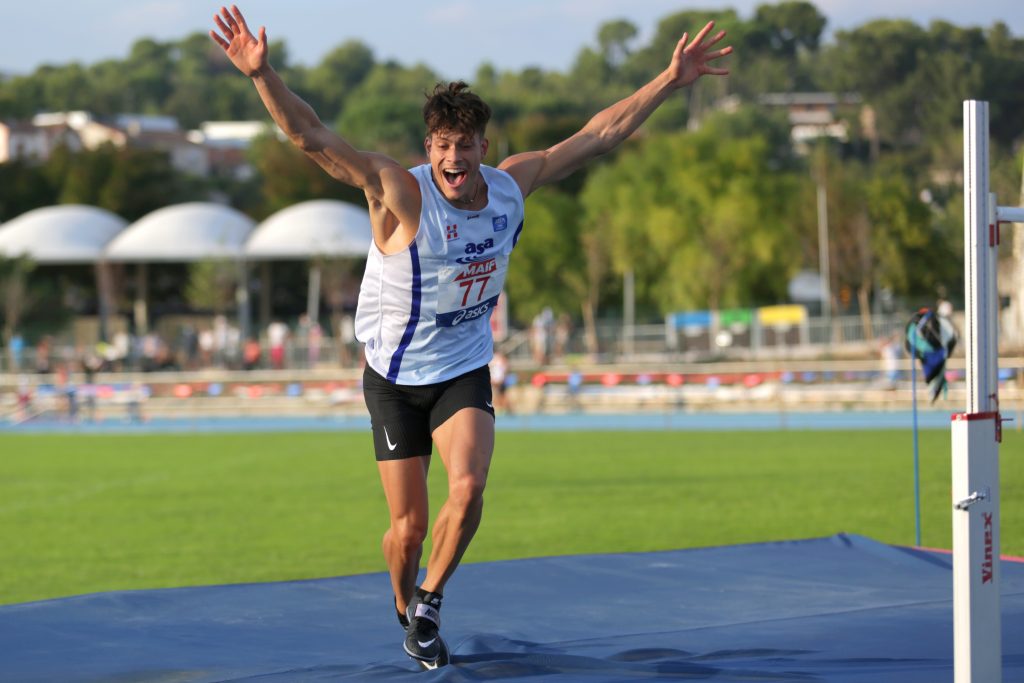
The man Hubert dislodged from the world lead in 2020 was Switzerland’s Simon Ehammer. Everything the 2019 European U20 champion touched seemed to turn to gold in 2020: leaping over 8m for the first time, running under 13.50 for the hurdles and becoming the first Swiss man to exceed 8000 points since 2003, doing it twice in the space of a month (8029 and 8231).
But 2021 has been bumpier for 21-year-old Ehammer, with his pole vault problems getting in the way of a 6300+ score indoors, and a chance of a medal at the European Indoors. But if Ehammer has sorted the vault and he is fit, then the Swiss record will almost certainly fall this weekend – potentially both Stephan Niklaus’ 8334 (with old javelin in 1983) and Beat Gähwiler’s 8244 from 1988. He is currently 38th in qualification since his big performances in 2020 took place during the closed season for qualification, and he did not finish in Toruń.
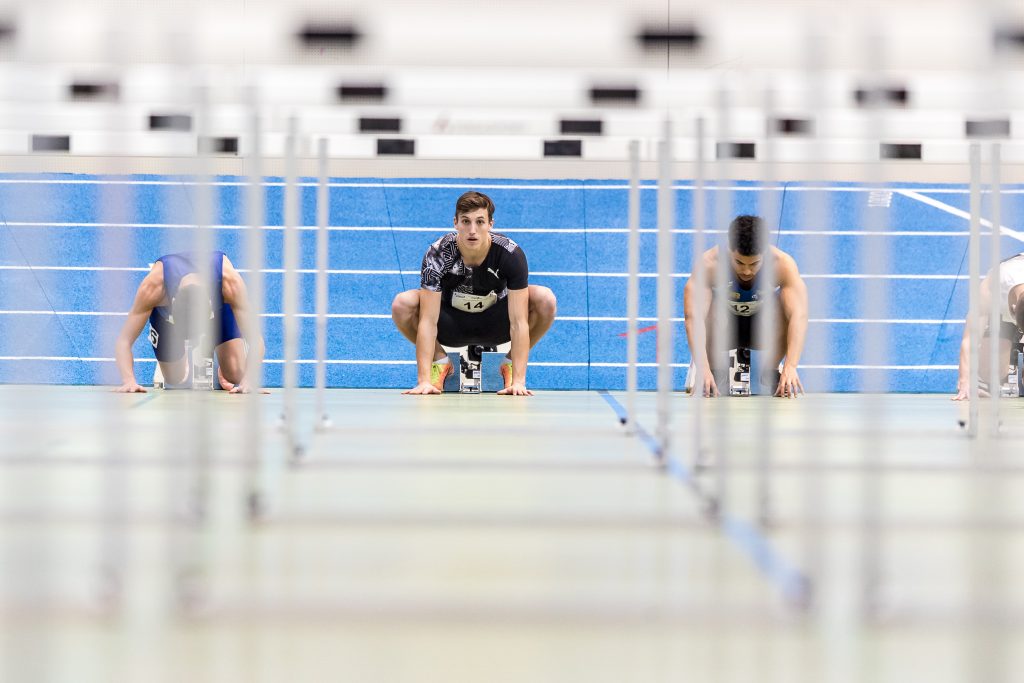
Ehammer is joined by team-mate Finley Gaio, also sub 14 seconds this year in the hurdles, also making his Götzis debut and also getting closer and closer to 8000.
Two-thirds of the 2019 European U20 decathlon podium start in Götzis, one Ehammer, the other bronze-medallist Markus Rooth from Norway, who holds the second-best score ever (8238) in the U20 decathlon, second only to Niklas Kaul. His first senior decathlon was interrupted by injury in 2020 and he is raring to go in Austria, as he told Decathletes of Europe earlier this week:
“This is going to be my first time at Götzis, and I’m really grateful for the opportunity, and looking forward to a fun weekend in a field full of role models.”
The importance of age-group competition in developing future talent – Niklas Kaul is the reigning European U23 champion – is emphasised further by the graduation of the entire 2019 Dutch Euro U23 squad to participation in Götzis. In Gävle, Rody de Wolff was 4th (in a PB of 7982) and Rafael Rapp 6th (his best is 7829) and both have 8000 points as their next target.
But it was the third man, Rik Taam, who has since made the breakthrough. Taam no heighted in the PV in Gävle, but in 2020 he broke 8000 points with a score of 8031 to win the Dutch champs. He hit the big time with an absolute barnstorming 1000m run at the Euro Indoors in Toruń, leapfrogging Bechmann and Lillemets to finish 4th and just 22 points behind Pawel Wiesiołek in bronze. 8200-8300 is definitely within Taam’s reach if all goes well.
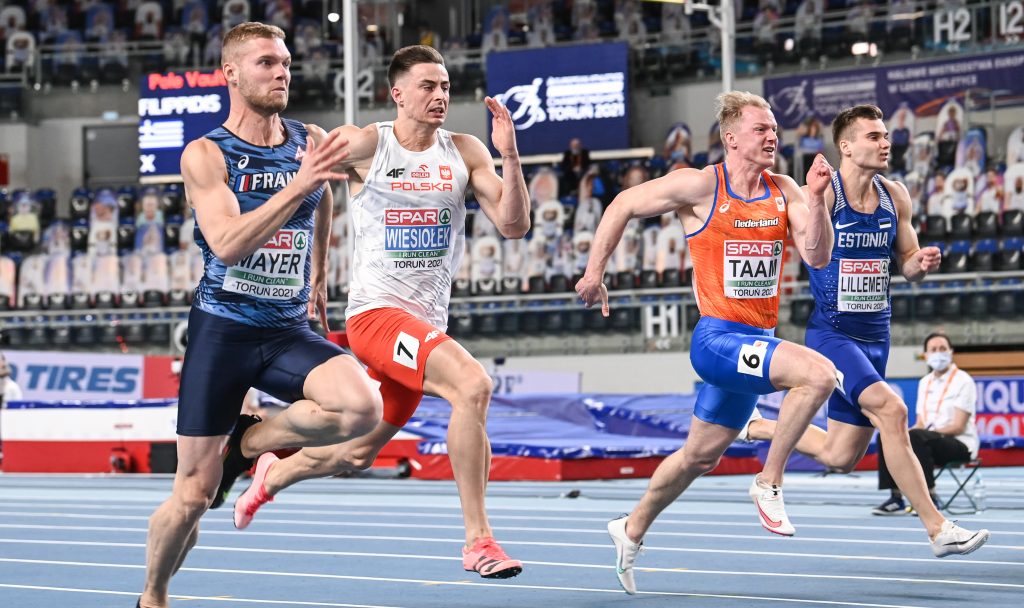
Pawel Wiesiołek’s delight in winning bronze in Toruń was one of the highlights of the European Indoors, and he leads a pack of Götzis veterans who do not yet have the Tokyo qualifying score, but who sit within the top 24 of the Olympics quota. Wiesiołek currently sits in 24th, Czech Republic’s Jan Doležal in 21st, Belarus’ Vitaly Zhuk in 20th and Thomas van der Plaetsen in 19th. Fredrik Samuelsson is just outside qualifying in 27th, and Niels Pittomvils a little further behind as he continues his comeback from injury.
HEPTATHLON
The Americans have brought a fearsome heptathlon squad to Götzis, headed by Erica Bougard and Kendell Williams; Erica in her first heptathlon since placing 4th in Doha, and Kendell fresh from her stunning 7m long jumping in Georgia. Both have outright qualifying scores from 2019, but of course they need to first navigate the brutal US trials on 26-27 June.
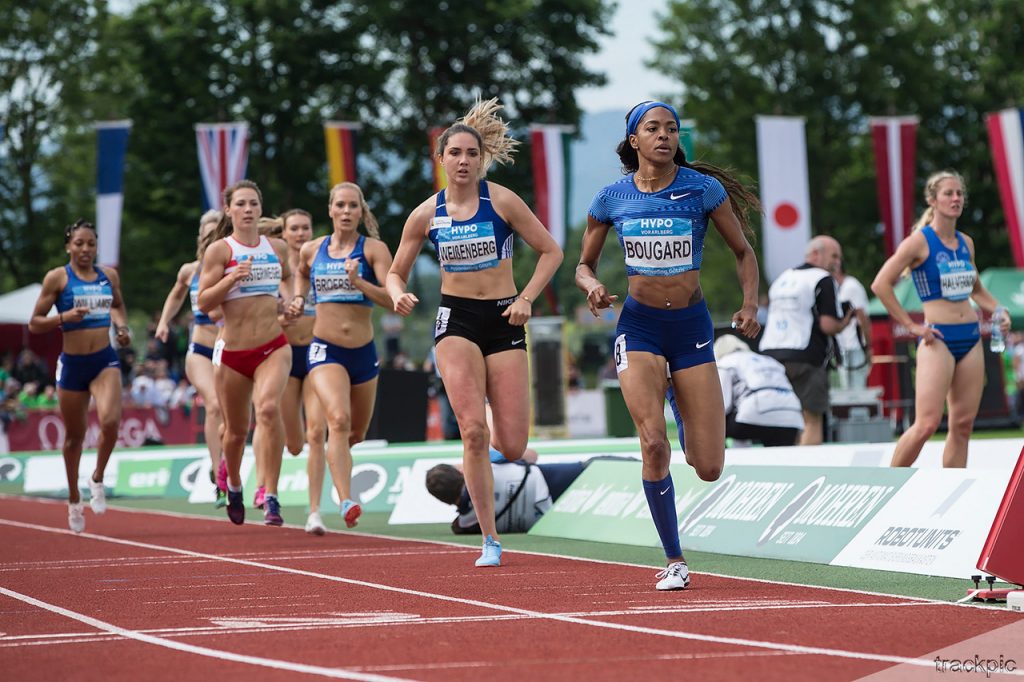
Assuming all goes well for them, the third US spot is up for grabs and Annie Kunz, whose position leading the 2019 Combined Events challenge secured her a place in Doha, is well placed to take advantage. She is currently 23rd in the qualifying lists, but has been in brilliant form this year, blitzing PBs indoors and out, as has training partner Riley Cooks who makes her debut at Götzis after her 6160 PB in Chula Vista last month.
“I’m very excited for my first Götzis experience!” Riley told Decathletes of Europe. “My goals are to have fun and continue building on the improvements I’ve seen this season.”
The US team is completed by Taliyah Brooks, currently 6th on the 2021 world lists after her early season 6252 in March.
Rivalling the Americans for experience and new talent – and just watch them go in the javelin – is the Dutch trio. The 2017 World bronze medallist Anouk Vetter is keen to secure an outright qualifying mark, since her absence with injury over the last few years means that she is not yet ranked. Although neither of them yet have the qualifying score, Nadine Broersen is currently 10th in the qualification lists, and Emma Oosterwegel 12th, so both can feel relatively confident that they will qualify and can focus on their preparation.
Aside from the Americans, Xenia Krizsan from Hungary is the other athlete in the field with the automatic qualifying score, with her national record of 6619 from Talence in 2019. She has been in good form already this year, winning the bronze medal at the Euro Indoors in Toruń.
Like the men, there are a cluster of athletes currently within the quota for the Olympic Games, a combination of automatic qualifiers and rankings positions. Odile Ahouanwanhou from Benin sits in 13th position for qualifying and has already set 3 Benin national records indoors in 2021. Marthe Koala is behind her in 18th place, thanks in part to her Burkina Faso national record of 6238 when finishing 3rd at Multistars last month, and Adriana Rodriguez is in 22nd, on the basis of her 6100+ scores in 2019. Rodriguez’ teammate Yorgelis Rodriguez has not completed a heptathlon since 2018, the year in which she sent the Cuban national record of 6742 in Götzis, and has competed very little since then, so will bring something of an unknown quantity.
The most interesting team is the Germans, a blend of youth and experience, from whom the Federation is looking for 6250 points to secure selection (if within the rankings quota). In Carolin Schäfer’s absence due to Covid vaccination side effects, Anna Maiwald leads the team, and she is currently positioned in 26th place for qualification, and Sophie Weissenberg is just behind her in 29th. Sophie won silver at the Euro U23s in 2019 shortly after making her Götzis debut, and her teammate in Gävle Vanessa Grimm has also made strides since 2019, with a suite of PBs in 2021. Louisa Grauvogel may finally have a season free from injury, and is already showing promising form, winning the 4-event competition in Frankfurt a few weeks ago. But look out for Lucie Kienast. She is one to watch for the future, but the 19-year-old is already making her mark with a 6044 heptathlon this year. Lucie is also a 6.50 long jumper, and mentored by the great Heike Drechsler.
Alongside Kienast, 17-year-old Henriette Jaeger has been the breakout star of U20 heptathlon over the last year. She qualified for the European Indoors in Toruń but had to withdraw, because Covid. She has been tearing up record books over the last year. In 2020 she set a World U18 heptathlon best of 6301, and a European U18 pentathlon best of 4414; and this year she has already set a Norwegian pentathlon record of 4471. Her senior heptathlon best is 5875, but she will certainly be knocking on the door of 6000 points soon.
The Finns are also worth looking out for – Maria Huntington and Miia Sillman sit at 3rd and 5th in the Finnish all time lists with their 2019 PBs of 6339 and 6209 respectively, surrounded by performances from the 1990s. The field is completed by Georgia Ellenwood, the 2018 NCAA champion, Adrianna Sułek, the 2019 Polish heptathlon champion, Bianca Salming, 7-time Swedish heptathlon/pentathlon champion and Esther Turpin, the 2018 French indoor and outdoor champion.
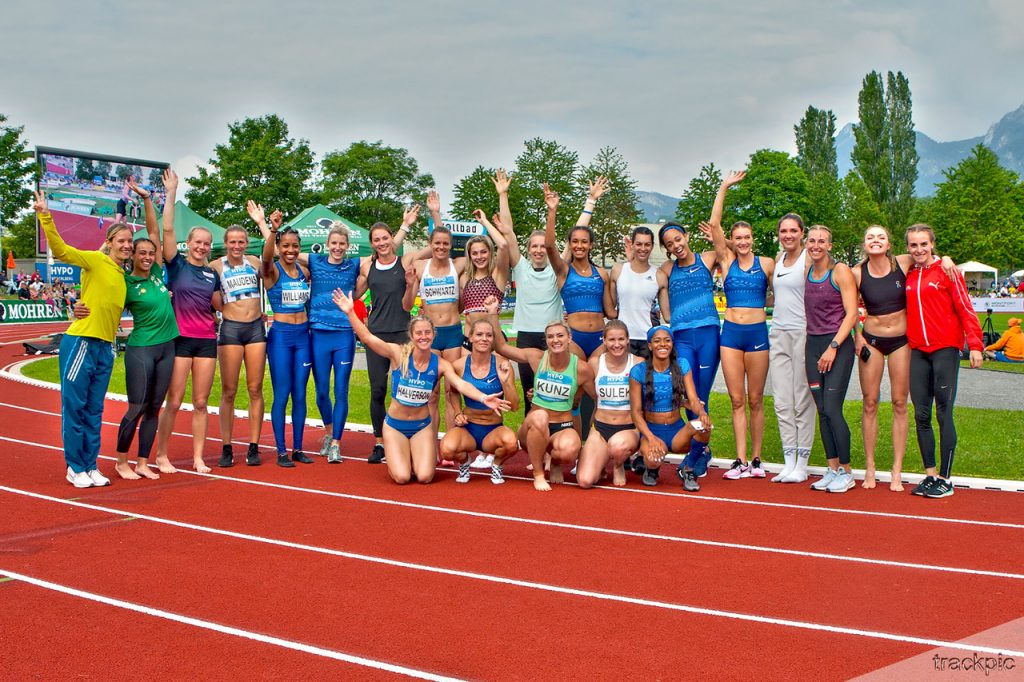
All photos as credited – cover photo by Trackpic


